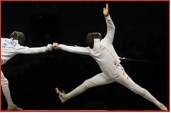As a professional coach to ministers I get to invest my life in catalytic conversations. Conversations that produce change. And, change that transcends behavior. It’s a change in being.
Clients have the opportunity to fundamentally shift the way they perceive themselves, their challenges, their ministry context, and those in it.
Conventional coaching, I think, is often tactical.  What to do and how to do it better.
What to do and how to do it better.
Many coaches help people do things better. Coach and client move from obstacle to obstacle and from one context to another: office, marriage, staff, elders, family, congregation.
While the client receives benefit, the rate of motion can be glacial. And that’s not good enough.
To support a leader to make rapid movement and to sustain that rate of change over a lifetime, it is helpful to engage on a different level. To provoke awareness and champion responsibility at the core of the client’s self-understanding:
1. Who are you?
2. Why do you think you’re here?
3. What difference are you alive to make?
4. What will it look like when it happens?
In short: What “game” are you in?
See, every one of us gets to choose “the game” we’re in. Clear about that, you can give yourself to your life without reservation. Without limitation.
Imagine twin brothers. Both with Olympic dreams… and Olympic talent.
The other in fencing.
Everything about how these athletes live will be determined by the “game” they’ve chosen: what they eat, how they exercise, the muscles they develop, their physical conformation, vision, stamina, quick twitch muscle development, leg strength, etc, etc. We can know little about what it takes to excel at fencing or shot put, and recognize that the decisions of each athlete will be far different.
The “game” you’re in determines how you “play”.
Now, let’s say your in a difficult marriage. All marriages get difficult at times, and many times these difficulties reveal much about the “game” each spouse is in.
In one marriage, the partners are committed to equality. What each wants is fairness: I do my part and you do yours. We contribute equally. No one gets taken advantage of. It’s the “game” this first couple is in.
In another marriage, each spouse is committed to be a gift of love to the other. Without condition. Without reference to their mate’s generosity, responsiveness, or reciprocation. To be “love” to the other. This is the “game” the second couple is in.
And, the game they’re in, determines everything about how they play.
Doesn’t it?
Coaching Distinctions #30

